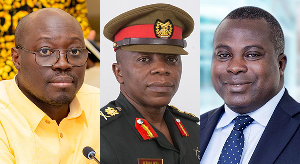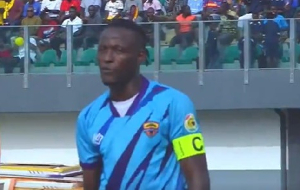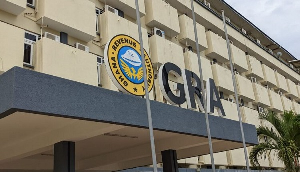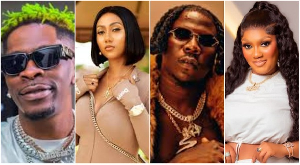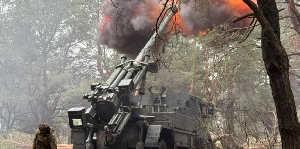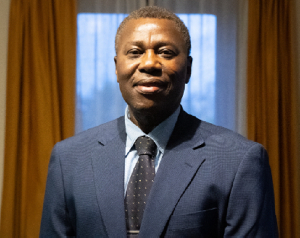By Kwame Okoampa-Ahoofe, Jr., Ph.D.
Now that the New Patriotic Party (NPP) has resoundingly settled the question of who will lead it to Election 2012, the temptation will be for members and staunch supporters of the party to fervidly latch onto the next most exciting process – and that is, of course, the selection of a running-mate for Candidate Addo Dankwa Akufo-Addo. But such move would be woefully premature. What is really needed now is for our re-elected presidential candidate to spend the next several weeks recuperating from, perhaps, the most soul-wrenching and traumatizing primary campaign in Ghana’s most recent history.
And during this period of recuperation, Nana Akufo-Addo ought to be meeting with his campaign strategists, advisors and supporters to map out a comprehensive agenda for the sociopolitical, economic and cultural rehabilitation of our dear country.
Already, Nana Akufo-Addo has started himself well by promptly arranging to meet with his defeated rivals. His graciousness and all, notwithstanding, we must still be bold enough to blatantly observe that the healing process will not happen overnight. Too much rancor, bitterness and downright enmity festered during the course of the NPP presidential primary campaign. Sometimes the keen observer wondered whether the top hierarchy of the party, particularly those passionately aligned behind one of the five contenders, did not resent one another more than their political detractors and outright enemies, the so-called National Democratic Congress.
In the preceding sphere of endeavor, therefore, it very well may be necessary for the National Executive Committee (NEC) of the NPP to lay down a few practical rules and principles to govern legitimate participation in party primaries, at both the national and constituency levels, in the near future.
The propaganda machinery of the party also needs to be thoroughly reviewed and where deemed appropriate promptly overhauled. On the latter score, emphasis should be placed on effective communication at the grassroots level, with the possibility of the party establishing newspapers and also radio stations in the various districts/constituencies across the country. Then also, several party-owned regional television stations could be set up with a mixed program aimed at both commercial viability and public service. To-date, while it has remarkably improved since the last general election, nonetheless, in general, the NPP propaganda machinery remains relatively weak, thus leaving a disproportionate chunk of the field to be dominated and facilely manipulated by our main ideological opponents.
It is also rather refreshing that finally major leaders and political heavyweights like former President Kufuor have begun calling the ruling NDC up on its corrupt and extortionate ways. Mr. Kufuor needs to keep the pressure at full-throttle, with the full-symphonic backing of a human-rights conscious press.
In about three to six months from now, a comfortably settled Candidate Akufo-Addo could then begin to draw a short list of potential running-mates. And, of course, while leadership skills and qualifications ought to be prioritized, nonetheless, it also goes without saying that equally significant consideration ought to be accorded to regional balance. I would personally prefer that Candidate Akufo-Addo focus on qualified potential running-mates from the Volta and the three Northern regions. For while, indeed, the party will continue to be dominated at the membership level by the Akan majority of our country, nevertheless, unlike the Ewe-chaperoned National Democratic Congress, the NPP can still remarkably improve on the distribution of executive and other significant positions among the various ethnic groups across the country that constitute its primary membership.
Needless to say, the politically regressive picture of four Asante, or Kumasi, “boys” ganged up against the Kyebi “lad” may well have caused most NPP presidential primary voters, irrespective of ethnicity, to choose the far and away frontrunner and most astute and seasoned candidate who was increasingly made to feel like a hostile outsider to the very party whose birth was inspired by his own direct forebears. Such a patently ugly picture was made even worse when “The Rascal Four” unwisely decided to malign the entire party executive by pretending as if NPP electoral protocol were primarily and invariably predicated on whose allies clinched the topmost positions at the national level.
Anyway, now that Ghanaian voters, at least those who voted in the most recent NPP presidential primary, are becoming healthily too sophisticated to be hoodwinked by the shallow façade of ethnic nationalism, the imperative need for potential candidates – at both the presidential and local levels – to focus on their ability to construct progressive campaign narratives, in a bid to gaining both the support and confidence of voters, cannot be overemphasized.
Ultimately, the primary winners of the August 7, 2010 NPP presidential nomination contest were the voters themselves and, logically, by extension, Ghanaians at large.
*Kwame Okoampa-Ahoofe, Jr., Ph.D., is Associate Professor of English, Journalism and Creative Writing at Nassau Community College of the State University of New York, Garden City. He is a Governing Board Member of the Accra-based Danquah Institute (DI) and the author of 21 books, including “Selected Political Writings” (Atumpan Publications/Lulu.com, 2008). E-mail: okoampaahoofe@optimum.net.
###
Opinions of Sunday, 15 August 2010
Columnist: Okoampa-Ahoofe, Kwame


